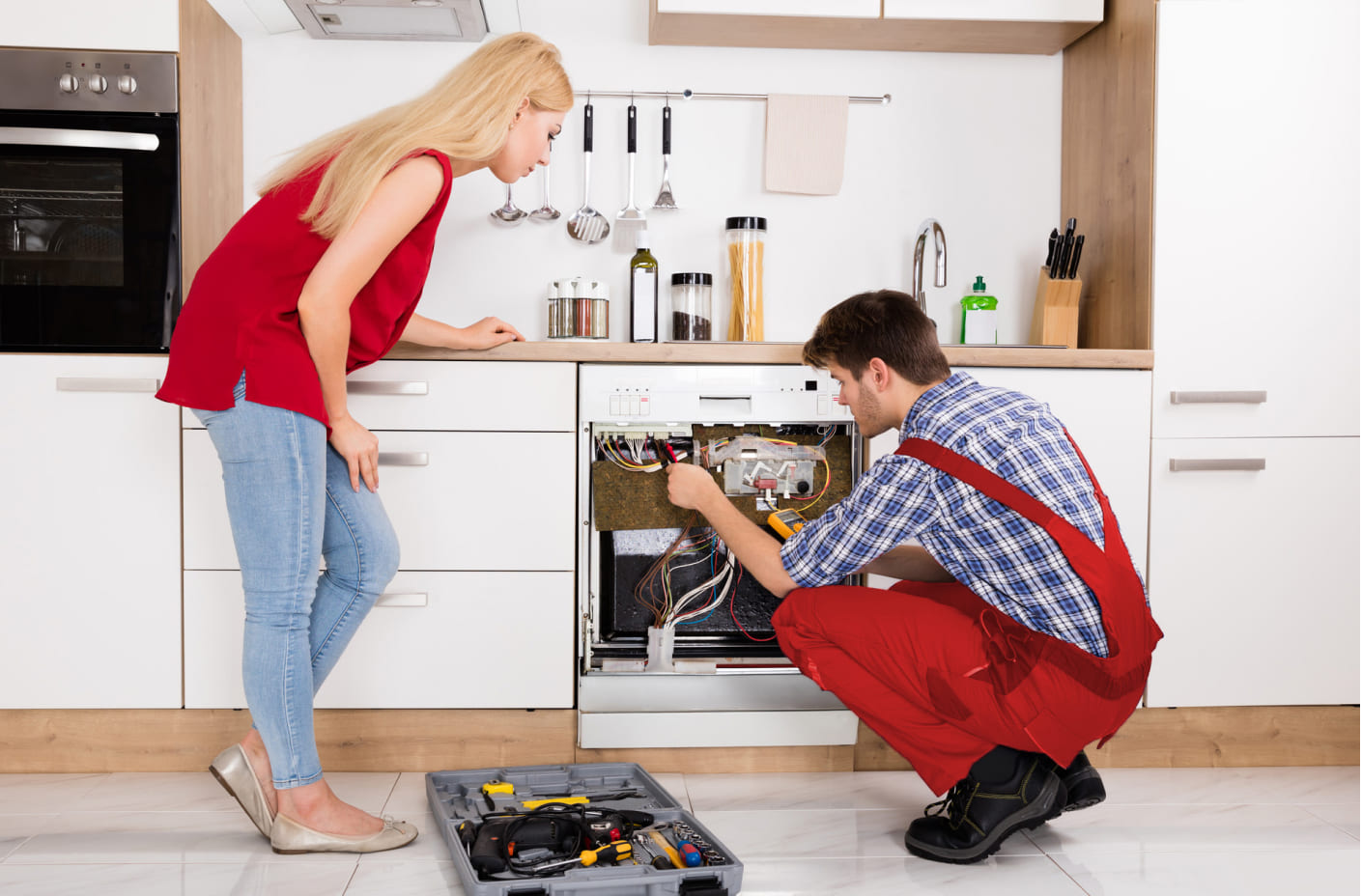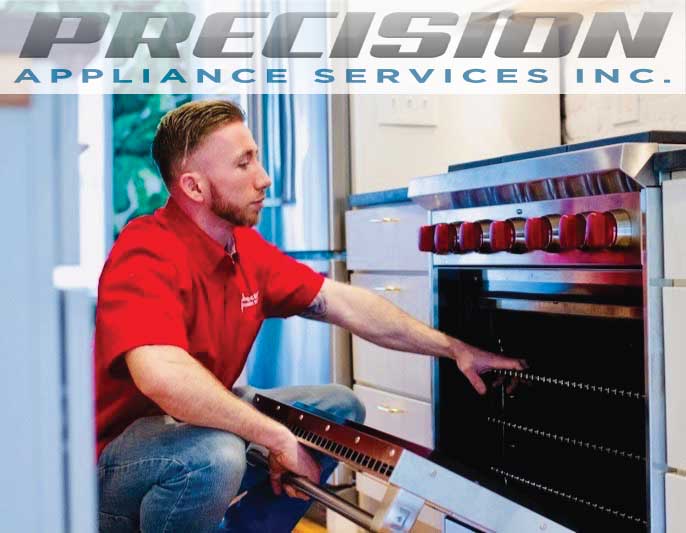OEM vs. Aftermarket – Dependable Refrigeration & Appliance Repair Service Washing Machine Repair
OEM vs. Aftermarket – Dependable Refrigeration & Appliance Repair Service Washing Machine Repair
Blog Article
The Ultimate Guide to Understanding Home Appliance Repair in your home
When your fridge quits cooling or your stove declines to heat, it can feel frustrating. Comprehending device fixing in your home can conserve you money and time. You'll discover to acknowledge signs and symptoms, use vital devices, and adhere to a methodical troubleshooting process. However before you begin, there are critical safety precautions you need to take into account. What are one of the most usual problems, and how can you fix them? Allow's explore the essentials.
Common Appliance Issues and Their Signs
When your appliances begin acting up, it's necessary to identify the indicators early. Neglecting them can cause bigger concerns and expensive repair work. For circumstances, if your refrigerator isn't cooling down effectively, you may notice warm places or condensation developing. This might indicate a failing compressor or an obstructed vent.Your dishwasher may reveal problems through dirty meals or uncommon sounds during cycles. If you listen to grinding or clanking, it's time to investigate.A washing device that will not spin or drain pipes can leave you with soaked washing, suggesting a blocked drainpipe or a malfunctioning pump.Lastly, if your oven's temperature seems off or it takes for life to pre-heat, you may be dealing with a faulty thermostat. By remaining alert to these signs, you can attend to concerns prior to they intensify into major repair work.
Necessary Tools for Home Appliance Repair Service
When you're tackling home appliance repair work at home, having the right tools is important. Basic hand devices like screwdrivers and pliers will certainly assist you dismantle and repair different home appliances, while electrical screening devices ensure you're working safely with circuitry. Let's discuss what you need to begin on your fixing journey.
Basic Hand Tools
Having the right tools is important for efficient home appliance repair service at home. Start with a trustworthy screwdriver collection, including both flathead and Phillips types, as screws prevail in device assembly. Pliers are additionally essential; they aid with gripping, turning, and cutting cords or tiny components. A set of needle-nose pliers can reach difficult situations conveniently. You'll need a good adjustable wrench for tightening up or loosening nuts and bolts. An energy knife comes in handy for puncturing product packaging or insulation. Lastly, don't neglect a sturdy workbench or surface to securely arrange your tools and components. With these fundamental hand tools, you'll be well-prepared to take on most appliance repair services that come your way.
Electric Testing Instruments
Together with basic hand devices, electrical screening devices play a vital function in appliance fixing. These tools help you diagnose electrical problems and guarantee devices function safely. A multimeter is essential; it measures voltage, present, and resistance, allowing you to identify troubles quickly. A non-contact voltage tester is an additional must-have, allowing you identify live cords without making direct get in touch with, boosting your safety and security. Secure meters are terrific for gauging present circulation in wires without detaching them, conserving you time and effort. Additionally, circuit testers can swiftly check if outlets are operating effectively. By making use of these gadgets, you'll enhance your troubleshooting procedure and boost your repair work abilities, making device upkeep a whole lot simpler.
Step-by-Step Overview to Diagnosing Home Appliance Issues
When your device acts up, it can be irritating, but diagnosing the problem doesn't have to be overwhelming. You'll discover to identify typical troubles and use reliable repairing strategies. Let's walk through the actions to obtain your appliance back in functioning order.
Usual Device Troubles

Fixing Methods Discussed

Repairing Significant Kitchen Area Home Appliances: A Closer Look
Have you ever before asked yourself how to take on common problems with your kitchen area home appliances? Repairing major kitchen area devices like fridges, ovens, and dishwashers can be much easier than you assume. Begin by determining the problem-- whether it's a fridge not cooling down or a stove that won't heat up. Typically, a basic reset or examining the power source can fix the issue.For refrigerators, clean the condenser coils and examine the door seals. If your oven's not home heating, examine the home heating aspect and thermostat. Dish washers might just need a clean filter or a reset to get them back in activity. Constantly unplug the home appliance before diving into repair services to guarantee your safety.Don' t forget to seek advice from the user handbook for particular repairing ideas connected to your model. With a little bit of persistence and the right devices, you can confidently take on device repair work and conserve money while doing so!

Repairing Washing Equipments: Tips and Techniques
When your washing home appliances begin breaking down, it can feel frustrating, yet troubleshooting them doesn't need to be an inconvenience. Begin by inspecting the power supply. Confirm the home appliance is plugged in and the outlet is operating. Next, evaluate the door or lid switch; a defective button can avoid the machine from operating.For washing machines, if it's not rotating, look for out of balance tons. Rearranging the clothes could solve the concern. If your clothes dryer isn't heating, clean the dust filter and examine the vent for blockages.Listen for uncommon noises; they can show a trouble. If your device is dripping, check the tubes for splits or loose links. Record any error codes presented on electronic displays, as they can lead you in recognizing the problem. Lastly, seek advice from the individual handbook for details troubleshooting tips associated with your model.
Safety Preventative Measures to Take During Fixes
Prior to you begin any type of other appliance repairs, it's necessary to prioritize security to protect against accidents or injuries. First, disconnect the home appliance or turn off the breaker to ensure no power reaches it while you work. Use shielded devices to minimize the danger of electrical shock. Use safety goggles and gloves to secure yourself from sharp edges or debris (Dependable Refrigeration & Appliance Repair Service Washing Machine Repair).Make particular your work space is clean and well-lit, so you can see what you're doing. Maintain kids and family pets away from the area to avoid interruptions and possible risks. If you're handling gas appliances, be extra cautious; check for leakages prior to proceeding.Take your time, and don't hurry with repair services. If you feel unpredictable concerning any action, it's better to stop briefly and research than to presume. Following these preventative measures will certainly aid create a safer setting for your DIY home appliance repair service job
When to Call a Professional for Aid
How do you know if it's time to contact a professional for device fixings? If you've attempted fundamental troubleshooting without success, it's a clear sign. If your home appliance still will not start or reveals uncommon sounds after resetting it, do not be reluctant to look for expert help.When you discover leaks, smoke, or melting smells, prioritize safety and security and call a professional quickly. These concerns can bring about more significant damage or posture dangers to your home.Also, Read Full Report if your device is under guarantee, speaking to an expert is typically the finest route. They can assure that repairs won't void your service warranty, conserving you money in the long run.Finally, if you're not sure or uncomfortable with complicated fixings, it's important to leave it to the experts. Bear in mind, tackling complicated issues without the ideal experience can lead to pricey blunders. Trust an expert when in uncertainty!
Frequently Asked Questions
How Can I Avoid Appliance Problems in the Future?
To protect against appliance issues in the future, you need to carry out regular maintenance, look for wear and tear, tidy filters, and stay clear of overloading. Staying proactive will assist extend their life-span and keep them running smoothly.
What Are the A Lot Of Typical DIY Device Repair Service Mistakes?
You may neglect security preventative measures, miss fixing steps, or use wrong tools when attempting DIY appliance fixings. Rushing the procedure or overlooking supplier guidelines can lead to even more substantial problems and costly blunders. Remain individual and informed!
Just how Do I Know if a Component Requirements Substitute?
You can tell if a part needs replacement by examining for uncommon noises, leakages, or inconsistent performance. If the device battles to operate correctly or shows noticeable damage, it's most likely time for a substitute.
Can I Make Use Of Generic Components for Appliance Repairs?
Yes, you can use common parts for home appliance repairs, but determine they work - Dependable Refrigeration & Appliance Repair Service Washer repair near me. Generic components could conserve you cash, however they could influence efficiency or longevity, so evaluate your choices meticulously prior to making a choice
What Service Warranties Cover Home Appliance Services?
A lot of home appliance warranties cover repair work for producing issues, however they frequently exclude damage from abuse. Examine your warranty terms meticulously, as some could need utilizing qualified technicians and initial components for coverage to remain legitimate.
Report this page